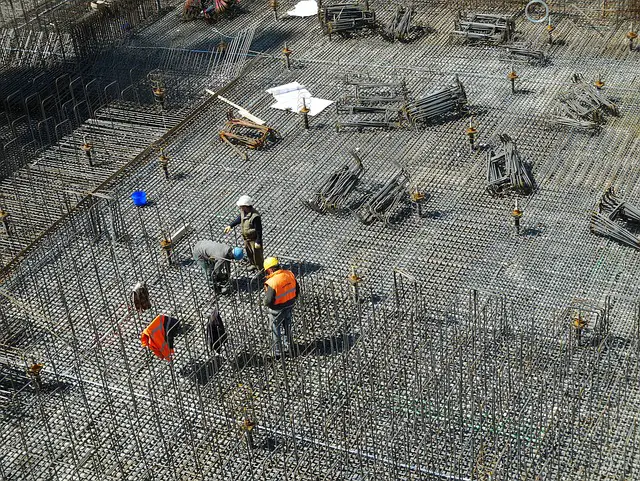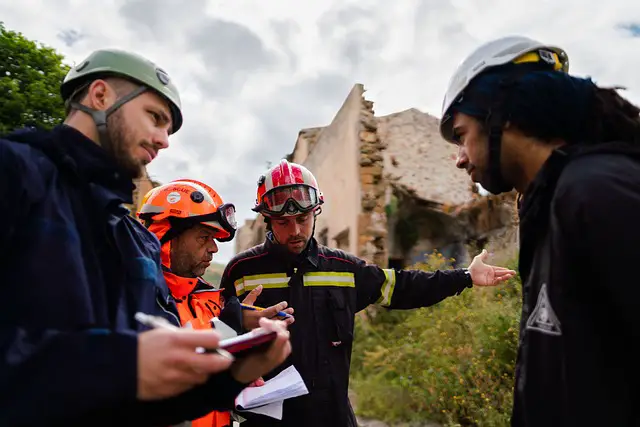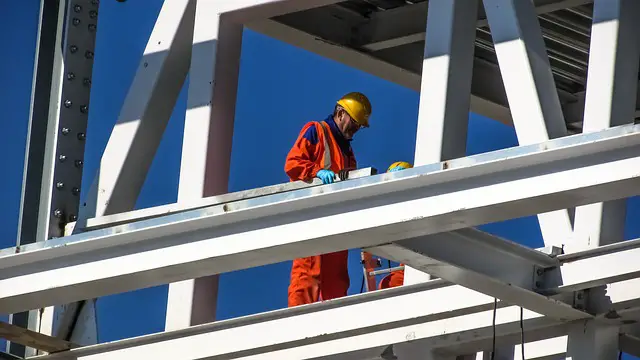Construction engineering focuses on the planning and management of construction projects, including the coordination of resources, scheduling, and cost control. Civil engineering, on the other hand, encompasses the design, construction, and maintenance of infrastructure such as buildings, bridges, roads, and water systems.

Construction engineering is the engineering discipline that applies science and technology to the planning, design, construction, operation and maintenance of infrastructure projects. Construction engineers manage projects from inception to completion, ensuring that they are completed on time, within budget and to the required quality standards.
What is civil engineering?
(Image by RAEng_Publications from Pixabay )

Civil engineering is the branch of engineering that deals with the design, construction, and maintenance of the physical and naturally built environment, including works like bridges, roads, canals, dams, and buildings. Construction engineering is a related field that deals with the actual construction process of these structures.
Civil engineers need to have a strong understanding of mathematics and physics, as well as being able to use computer-aided design (CAD) software. They also need to be good at problem solving, as they often have to find creative ways to overcome obstacles during the planning and design stages of a project.
Construction engineering Vs. Civil engineering – Key differences
Construction engineering and civil engineering are two closely related fields, but they have some key differences. Here are some of the main differences between construction engineering and civil engineering:
Focus: Construction engineering primarily focuses on the planning and execution of construction projects, while civil engineering encompasses the design, construction, and maintenance of infrastructure such as buildings, bridges, roads, and water systems.
Role: Construction engineers are responsible for overseeing construction projects from start to finish, including project planning, scheduling, and cost control, while civil engineers typically play a larger role in the design and development of infrastructure.
Education: Construction engineers typically have a bachelor’s degree in construction engineering or a related field, while civil engineers usually have a degree in civil engineering.
Certification: Construction engineers may pursue certification from professional organizations such as the Construction Management Association of America (CMAA), while civil engineers may seek certification from organizations such as the National Society of Professional Engineers (NSPE).
Project scope: Construction engineering projects are often smaller in scale and have a shorter timeline than civil engineering projects, which may involve large-scale infrastructure projects that can take years or even decades to complete.
Skillset: Construction engineers require strong management and leadership skills, as well as technical knowledge of construction methods and materials, while civil engineers need a deep understanding of math, physics, and engineering principles to design and develop infrastructure.
Specialization: Civil engineering encompasses a wide range of sub-disciplines, including structural engineering, geotechnical engineering, transportation engineering, and environmental engineering, while construction engineering typically focuses on the management and execution of construction projects within these sub-disciplines.
What is the role of engineer in construction?
Construction engineering is all about the planning, coordination, and execution of construction projects. Construction engineers are responsible for making sure that construction projects are completed on time, within budget, and to the required specifications.
Civil engineering is the branch of engineering that deals with the design, construction, and maintenance of the physical and natural infrastructure. Civil engineers are responsible for ensuring that our roads, bridges, dams, and other structures are safe and functional. They also play a vital role in planning and executing construction projects.
What is the role of a construction engineer?
A construction engineer is responsible for the design and construction of buildings, bridges, roads, and other structures. They work with architects and other engineers to ensure that the project is completed safely and on schedule. Construction engineers may also be involved in the management of construction projects, or the development of new construction methods and technologies.
What is the difference between civil engineer and site engineer?
The main difference is that civil engineer deals with the design and construction of infrastructure while site engineer manages the construction process on site.
A site engineer is a professional who is responsible for overseeing and managing the construction activities on a construction site. Here are some of the key duties and responsibilities of a site engineer:
Planning and scheduling: A site engineer is responsible for planning and scheduling construction activities, taking into account factors such as budget, timeline, and available resources.
Supervising construction: Site engineers supervise the construction process, ensuring that work is being carried out according to plans and specifications, and that it meets quality standards and safety regulations.
Quality control: Site engineers are responsible for ensuring that construction work is of a high quality, and that it meets relevant industry standards and building codes.
Project coordination: Site engineers coordinate with other professionals on the construction site, such as architects, contractors, and subcontractors, to ensure that everyone is working together effectively.
Cost control: Site engineers monitor the costs of construction work, and work to ensure that the project stays within budget.
Documentation: Site engineers maintain detailed records of construction activities, including progress reports, material deliveries, and change orders.
Safety: Site engineers are responsible for ensuring that the construction site is safe for workers, and that all safety regulations are being followed.
Civil engineers are responsible for the design, construction, and maintenance of infrastructure such as roads, bridges, dams, water supply systems, and sewerage systems. They must consider environmental factors when designing these structures. Site engineers manage the construction process of these projects. They oversee laborers, equipment, and resources to ensure that the project is completed on time and within budget.
What are the advantages and disadvantages of being a civil engineer and / or construction engineer?
Civil engineering and construction engineering are related professions, and there is some overlap in the advantages and disadvantages of each. Here are some of the key advantages and disadvantages of both professions:
Advantages:
- Job stability: Both civil engineering and construction engineering are essential and continuously growing fields, and the demand for skilled engineers is expected to continue to grow in the coming years.
- Variety of opportunities: Both fields encompass a wide range of sub-disciplines, providing a variety of career paths.
- Challenging and rewarding work: Both fields involve complex and challenging projects, and successfully completing them can be very rewarding.
- Good salary: Both fields typically offer a good salary, with the potential to earn even more with experience and specialized knowledge.
- Opportunity for creativity: Both fields often require creative problem-solving and innovation, providing opportunities for engineers to apply their creativity and ingenuity.
Disadvantages:
- Long working hours: Both fields often involve long working hours, with tight deadlines and pressure to complete projects on time.
- Stressful work environment: The pressure to complete projects on time and within budget can create a stressful work environment for engineers.
- Safety risks: Both fields can involve working in hazardous environments, such as on construction sites, and engineers must take precautions to ensure their safety.
- Complex regulations: Both fields are subject to complex regulations and building codes, which can be difficult to navigate.
- Heavy workload: Engineers in both fields are often responsible for managing multiple projects at once, which can create a heavy workload and make it challenging to balance competing priorities.
- Unpredictable work schedule: Engineers in both fields may need to work nights and weekends to meet project deadlines, which can disrupt work-life balance.
Both civil engineering and construction engineering can be challenging but rewarding professions, providing a variety of opportunities for professional growth and development.
What are the types of engineering?
There are many types of engineering, but the two most common types are construction engineering and civil engineering. Construction engineering is the branch of engineering that deals with the design and construction of buildings, bridges, and other structures. Civil engineering is the branch of engineering that deals with the design and construction of roads, railways, airports, and other infrastructure.
How to chose between construction engineering and civil engineering?
There are many factors to consider when choosing between construction engineering and civil engineering. Construction engineering is more focused on the construction process and the management of construction projects. Civil engineering is more focused on the design and analysis of infrastructure systems.
Some other things to consider include:
- The type of projects you want to work on
- Your skillset and interests
- The location of desired jobs
- The salary and job outlook for each field
Do some research and weigh all your options before making a decision. Talk to professionals in each field, and shadow someone in each profession to get a better sense of what each day-to-day looks like. Once you have all the information, you can make an informed decision about which path is right for you.
Featured Image By – Image by Dimitris Vetsikas from Pixabay








